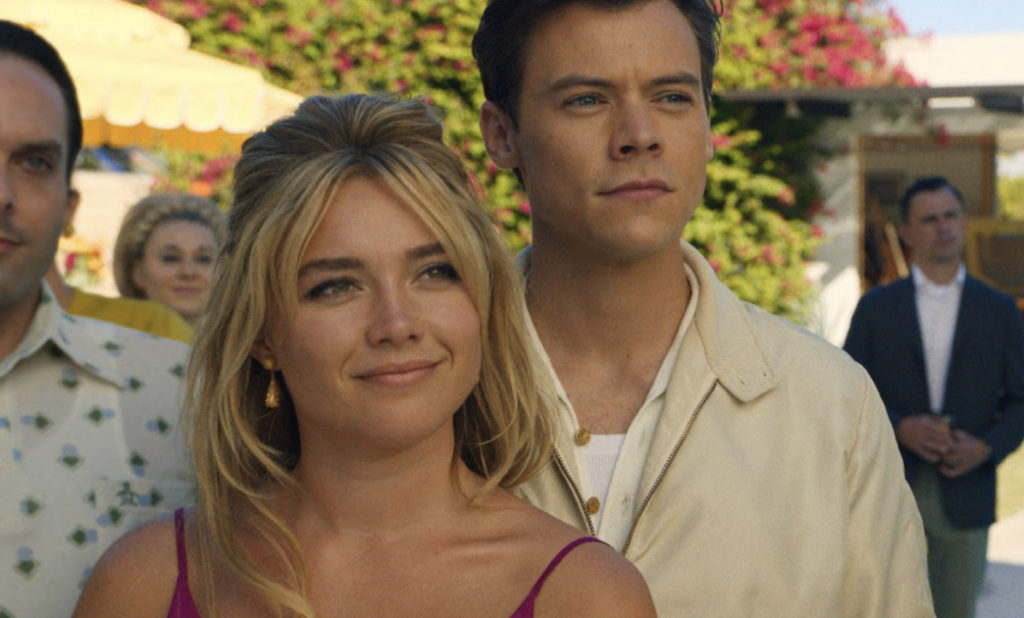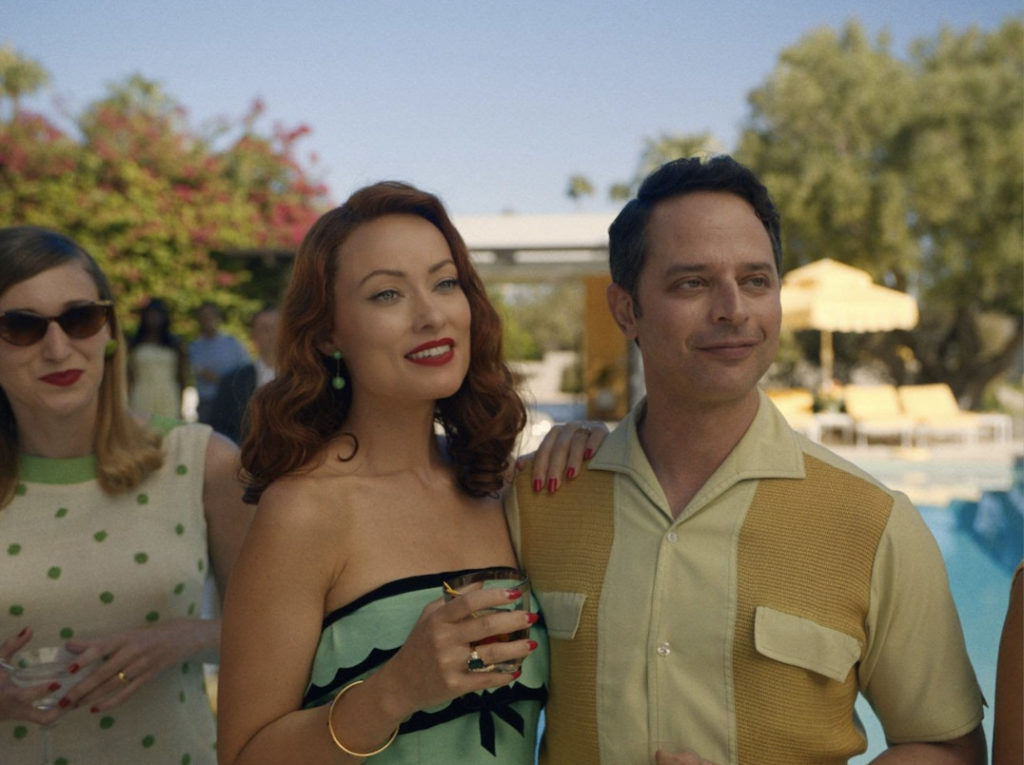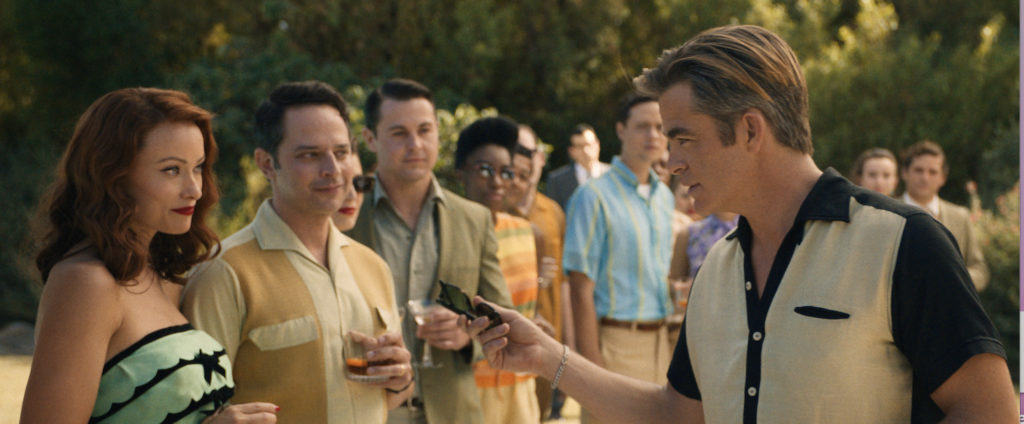
Even before viewing “Don’t Worry Darling” — director/actor Olivia Wilde’s latest outing and sophomore effort — audiences were besieged by tabloid gossip reports of the behind-the-scenes drama which already served up the divorced paper on the center stage of what was about to happen on the screen.
Oftentimes, when a film’s lead actress — in this case, Florence Pugh — is overtly reluctant to publicize the film in question, that’s a pretty bad sign about its content. However, it would be unfair to allow this gossip-based uproar to influence my critical feelings towards the film.
Through her directorial debut, “Booksmart,” Wilde made a mark by veering away from the cliches of lame teen comedies, and, instead, offered a fresh take on adolescent high jinks from a female perspective.
With her latest, Wilde fashions a very ambitious and complex feature. The film starts off questioning the value of the American dream by setting it in a densely white populated area of suburban America in the 1950s, which is often engraved in our minds as the classic notion of the American dream. But, at what lengths are people willing to go to achieve that vision and what are the consequences of following that concept is explored throughout the film.

The Chambers — Jack (Harry Styles) and Alice (Florence Pugh) — are a happily married couple who live in this utopian community set in a town called Victory. It’s built and created by the company Jack works for, which is headed by the mysterious Frank (Chris Pine). Every morning, Jack departs with the rest of the men, leaving their wives to take care of household chores. Alice is as subservient as are all the other women, and everything seems to be a picture perfect version of the American dream. Alice has many friends such as Bunny (Olivia Wilde) who has the same idyllic life with her husband Dean (Nick Kroll) and their two children. It’s the same life which is led by the other wives in the neighborhood, the dream life. But Alice has these sudden flashes before her eyes: what are they? What do they represent?
It’s no coincidence that the main character is named Alice; she feels like she’s falling down the rabbit hole of the Victory Project, the concept behind the town. As she examines the circumstances, it’s clear that they’re not in Kansas any longer. After she witnesses a black friend, Margaret (KiKi Layne), slit her throat and jump off a roof, it makes one wonder why Margaret is the only one who feels out of place in this oh-so white Anglo-Saxon town. Alice begins to question and investigate what’s underneath the shiny surface of Victory.
The opportunity arises when a plane suddenly crashes on the outskirts of the town, right near the headquarters of the mysterious company. Alice decides that she wants to know more. A few hours later, she wakes up distraught and confused in her own home. What happened to her? Why did the people in the town hide what happened? Is Jack also involved? She continues to pursue her investigation into dangerous territory.

Again, Wilde teams with writer Katie Silberman to make a much different observation of power and paranoia. She calls into question the value of the American dream. The recurring image of the suburban household has been presented here by the idea of the clean white fence, a green lawn and a happy family with children. In this film, Wilde blends multiple genres with a strong underlying social commentary, to make a film that calls into question the social order.
Nonetheless, Wilde’s execution felt off the mark. Some ideas are derivatively taken from other films such as “The Stepford Wives” and “The Truman Show.” The script feels thin with underwritten characters and plot holes. Styles doesn’t quite seem able to channel his on-stage charismatic performance into an authentic character, and his lack of chemistry with Pugh made it much harder to have an impact. Though Pine is solid as the eerily menacing Frank, Kiki Layne and Gemma Chan are wasted in their roles.

It’s unfortunate that this perfect life starts to unravel for Alice. Wilde’s film does a fine job in setting up its initial mystery, and Matthew Libatique’s cinematography lends to itself to the exquisite production details, brightly colored costumes, and ever-lasting shiny sun, which creates an amazing American Dream aesthetic.
“Don’t Worry Darling” is invested in Alice’s journey from dutiful housewife to subversive individual, but most of the characters in the neighborhood are half-baked. This production could have been more engaging if it were a TV series where more time could have been spent developing characters and drawing them out of these top-notch actors. The theme of questioning the value of the American Dream, could have had a significant ripple effect in these difficult times during the Covid era, but all that was done here was to throw a stone in the ocean.
Grade : C+
Here’s the trailer of the film.

